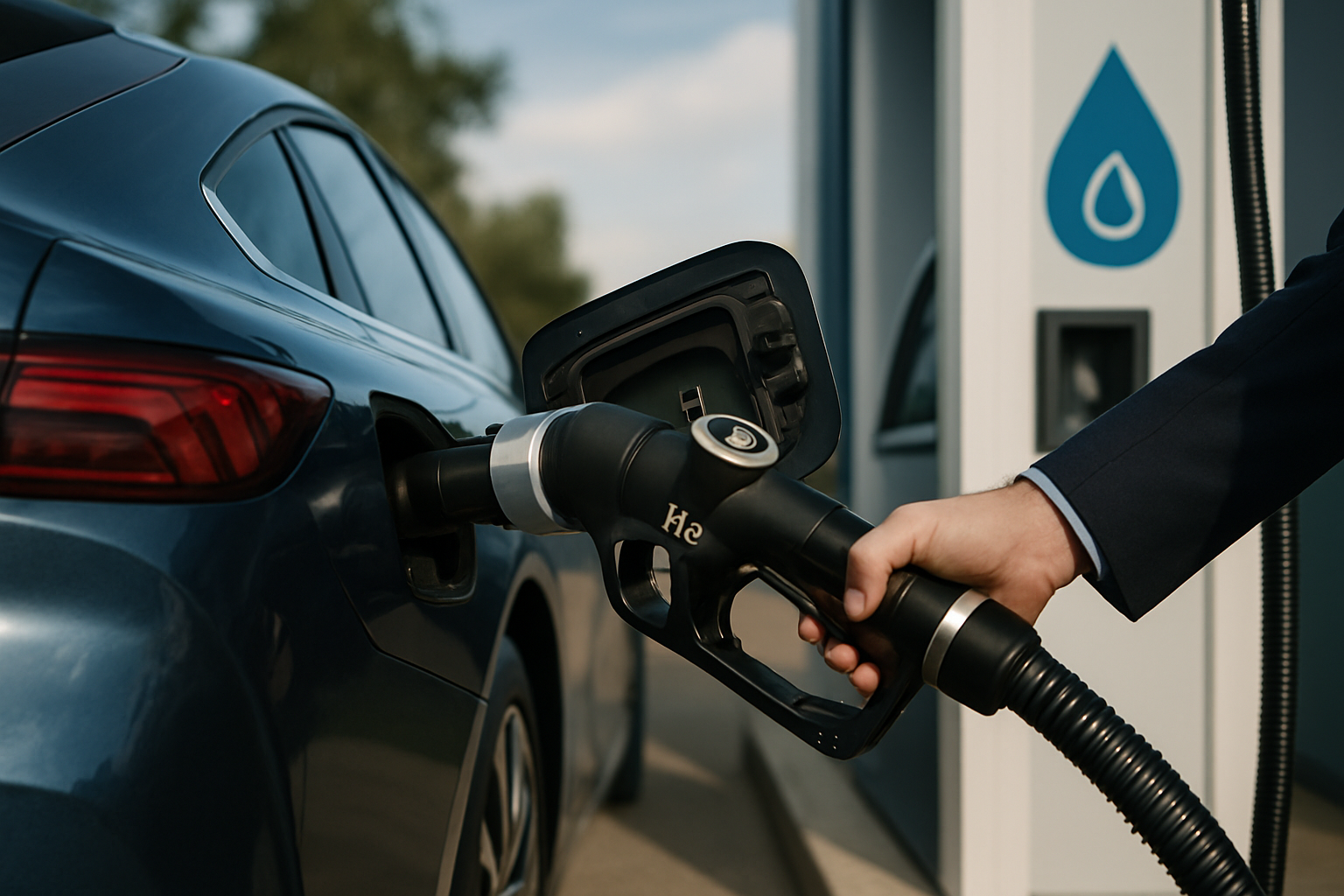Hydrogen Fuel Cells: The Quiet Revolution in Automotive Power
Imagine cruising down the highway in a vehicle that emits nothing but water vapor, refuels in minutes, and offers a range rivaling traditional gasoline-powered cars. This isn't science fiction—it's the promise of hydrogen fuel cell vehicles, a technology quietly reshaping the automotive landscape. As the world grapples with climate change and energy security, hydrogen fuel cells are emerging as a compelling alternative to conventional powertrains, offering a unique blend of environmental benefits and practical usability.

A Brief History of Hydrogen in Automobiles
The concept of using hydrogen as a fuel source for vehicles is not new. In fact, it dates back to the early 19th century when Swiss inventor François Isaac de Rivaz created an internal combustion engine powered by a mixture of hydrogen and oxygen. However, it wasn’t until the mid-20th century that serious research into hydrogen fuel cells for automotive applications began. NASA’s space program played a crucial role in advancing fuel cell technology, using it to provide power for spacecraft during the Gemini and Apollo missions.
The Modern Hydrogen Fuel Cell Vehicle
Today’s hydrogen fuel cell vehicles (FCVs) are a far cry from their experimental predecessors. Modern FCVs combine advanced fuel cell stacks with high-pressure hydrogen storage tanks, electric motors, and sophisticated control systems. The result is a vehicle that offers the quiet, smooth operation of an electric car with the quick refueling and long-range capabilities of a conventional gasoline-powered vehicle. Major automakers like Toyota, Honda, and Hyundai have already introduced hydrogen fuel cell models to the market, with others poised to follow suit.
Infrastructure: The Key to Widespread Adoption
Despite the promising technology, the widespread adoption of hydrogen fuel cell vehicles faces a significant hurdle: infrastructure. The lack of a comprehensive hydrogen refueling network has been a major obstacle to the growth of FCVs. However, this is slowly changing. Countries like Japan, Germany, and South Korea are investing heavily in hydrogen infrastructure, with plans to build hundreds of refueling stations in the coming years. In the United States, California leads the way with a growing network of hydrogen stations, supported by state initiatives and private investment.
Environmental Impact and Energy Security
One of the most compelling arguments for hydrogen fuel cell vehicles is their potential to significantly reduce greenhouse gas emissions. When powered by hydrogen produced from renewable sources such as solar or wind energy, FCVs offer a truly zero-emission transportation solution. Moreover, hydrogen can be produced domestically from a variety of sources, reducing reliance on imported fossil fuels and enhancing energy security. This versatility in hydrogen production methods makes it an attractive option for countries looking to diversify their energy portfolios.
Challenges and Future Prospects
While hydrogen fuel cell technology has made significant strides, several challenges remain. The cost of fuel cell systems and hydrogen production needs to decrease to make FCVs more competitive with conventional vehicles. Additionally, improving the efficiency of hydrogen production, particularly from renewable sources, is crucial for maximizing the environmental benefits of this technology. However, ongoing research and development efforts are addressing these issues, with promising breakthroughs on the horizon.
The Role of Hydrogen in a Multi-Technology Future
As the automotive industry undergoes a transformation towards cleaner, more sustainable technologies, it’s becoming clear that no single solution will dominate the market. Instead, a mix of technologies—including battery electric vehicles, hydrogen fuel cells, and advanced biofuels—will likely coexist to meet diverse transportation needs. Hydrogen fuel cells are particularly well-suited for long-range, heavy-duty applications such as trucks, buses, and even trains, where battery weight and charging times can be problematic.
In conclusion, hydrogen fuel cell technology represents a promising path towards sustainable transportation. While challenges remain, the potential benefits—zero emissions, quick refueling, and energy security—make it a compelling option for the future of mobility. As infrastructure expands and technology advances, we may soon see hydrogen fuel cell vehicles playing a significant role in our transition to a cleaner, more sustainable transportation system. The quiet revolution of hydrogen power is gaining momentum, promising to reshape the automotive landscape in the years to come.






